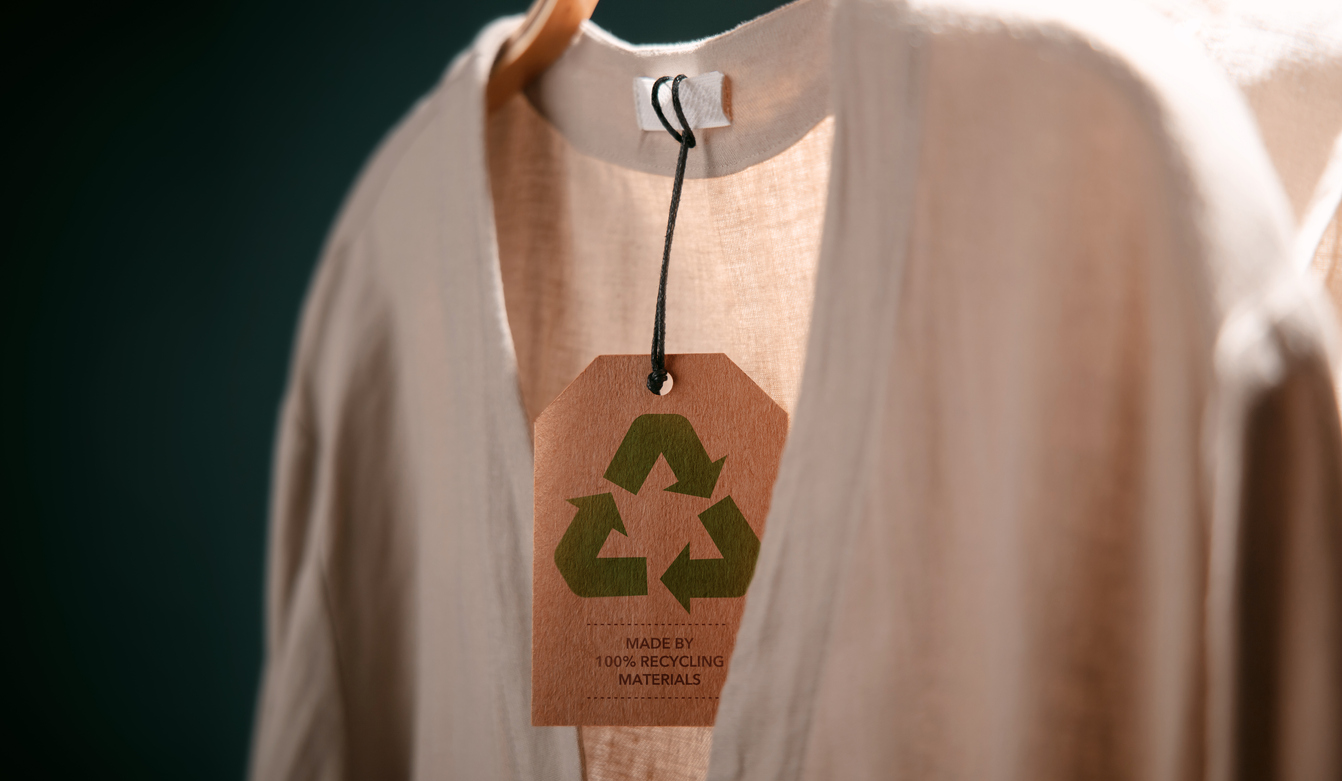Cape Town Sustainable Fashion: Honest Apparel for a Better Earth
Cape Town Sustainable Fashion: Honest Apparel for a Better Earth
Blog Article
Keep Ahead of the Contour by Discovering Ingenious Style Trends
In an industry as vibrant as style, staying ahead involves more than just following present patterns-- it requires an expedition of advancement. The convergence of technology and fashion proclaims a new age of consumer interaction.

Welcoming Smart Textiles
In recent times, the garment industry has actually witnessed a transformative change with the assimilation of smart fabrics, a cutting-edge technology that blends technology with material. This development represents not only a blend of visual appeals and functionality however additionally a considerable leap in the direction of sustainability and customization in fashion. Smart textiles, also referred to as e-textiles, installed advanced electronics such as sensing units and conductive threads within the fabric, enabling garments to communicate with the environment or the user.
These textiles are designed to check physical specifications, such as heart rate or body temperature level, giving real-time wellness analytics. Past wellness applications, wise fabrics are likewise being used for flexible garments, which can change color or pattern in reaction to environmental stimuli, hence providing a dynamic fashion experience.
Furthermore, the growth of energy-harvesting fabrics that produce power from motion or sunshine is leading the way for self-sufficient wearable modern technology. This innovation is attracting ecologically aware customers and developers intending to minimize the eco-friendly footprint of style. As research and development in this field breakthrough, smart textiles are expected to end up being progressively widespread, improving the landscape of contemporary fashion with their multifunctional abilities.
The Increase of 3D Printing
Transforming the manufacturing landscape, 3D printing has become a game-changer in the style industry. This advanced technology has allowed developers to push the boundaries of creative thinking, generating detailed and customized garments that were previously inconceivable. By leveraging electronic design and additive manufacturing, 3D printing promotes the development of complex geometries and patterns, enabling designers to experiment with brand-new appearances and frameworks.
A noteworthy advantage of 3D printing in fashion is its capability to create on-demand, minimizing waste and decreasing supply needs. This efficiency not only optimizes manufacturing processes however additionally permits for quick prototyping, enabling designers to bring their visions to life in a much shorter timeframe. Additionally, 3D printing supports customization to a degree unparalleled by conventional techniques, providing unique styles and personalized fits customized to specific customer choices.
The surge of 3D printing has also democratized fashion, making it obtainable to emerging designers that can now make high-grade pieces without significant economic investment in typical production framework. As innovation remains to development, the garment industry is poised to harness the full potential of 3D printing, exploring new materials and strategies that will unquestionably redefine exactly how style is developed and generated.
Sustainable Style Advancements
As the style sector faces the pressing requirement for environmental obligation, sustainable fashion technologies have actually arised at the forefront of transformative change. The expanding recognition of ecological influence has sustained a change in the direction of more eco-conscious practices and products. Designers and brands are currently focusing on sustainability, incorporating techniques that reduce waste and lower carbon footprints.
One substantial development is the rise of round style, which highlights recycling and upcycling to expand the lifecycle of garments. This approach not only minimizes waste but additionally encourages customers to embrace a much more mindful approach to garments intake. Furthermore, using lasting products, such as organic cotton, hemp, and recycled polyester, has gotten traction. These products require less water and power throughout manufacturing, substantially reducing environmental impact.
Another innovation hinges on the adoption of cutting-edge dyeing techniques that utilize waterless procedures or all-natural dyes, consequently lowering the large quantities of water and chemicals generally utilized in textile dyeing. Additionally, advancements in biotechnology have resulted in the production of lab-grown leather and materials, offering cruelty-free and ecologically pleasant choices to conventional products. Via these pioneering initiatives, the apparel industry is making significant strides in the direction of an extra sustainable future.

Tech-Integrated Apparel
Tech-integrated clothing stands for a cutting-edge blend of fashion and innovation, improving exactly how people connect with their clothing. This cutting-edge domain name is marked by the inclusion of wise textiles and ingrained digital components, enhancing both performance and aesthetic appeal. From health and fitness trackers embedded in sports apparel to warmed jackets regulated via smart device applications, tech-integrated apparel provides customers extraordinary convenience and versatility.
Introducing brands are driving this trend, concentrating why not try these out on developing garments that react to ecological stimulations or customer commands. For example, some garments can transform color or pattern in action to temperature level shifts, while others include biometric sensing units to check health and wellness metrics like heart rate or tension levels. The seamless assimilation of modern technology right into fabrics also includes environmental sustainability, with initiatives to develop self-cleaning materials or garments that get used to climate condition, thus lessening the need for several layers.
Additionally, the introduction of wearable innovation is not just limited to apparel but includes devices like watches and eyewear, more expanding the range of tech-integrated fashion. As the industry remains to introduce, the potential for customization and personalization in garments grows, using customers distinct, tech-enhanced style experiences that satisfy their private needs and choices.
Future of Virtual Fashion
Over the last few years, the future of virtual fashion has become a transformative pressure within the sector, leveraging developments in electronic modern technology to redefine just how style is developed, experienced, and taken in. By incorporating increased fact (AR), online truth (VR), and 3D layout devices, designers can now craft interactive and immersive experiences that go beyond traditional fashion boundaries. Online style allows for the production of garments that exist solely in electronic atmospheres, providing countless opportunities for innovation without the limitations of physical manufacturing.
This digital shift not only provides chances for innovative expression but likewise addresses sustainability worries integral in standard style methods. Cape Town Sustainable Fashion. By getting rid of the demand for physical sources, virtual fashion lowers waste and lessens carbon impacts. Moreover, the increase of virtual fashion straightens with the enhancing consumer demand for personalized and one-of-a-kind experiences, as digital garments can be personalized and tailored to private preferences effortlessly

Final Thought
The style market's future lies in the assimilation of cutting-edge technologies and sustainable practices. Online style is poised to redefine consumer communications.
In recent years, the fashion sector has actually experienced a transformative shift with the combination of wise fabrics, an advanced innovation that blends modern technology with material.As the style industry grapples with the pushing demand for ecological obligation, sustainable fashion innovations have arised at the forefront of transformative adjustment.In current years, the future of online style has actually arised as a transformative pressure within the sector, leveraging innovations in digital modern technology to redefine exactly how fashion is produced, experienced, and eaten. The increase of online fashion you can check here aligns with the boosting consumer demand for individualized and one-of-a-kind experiences, as virtual garments can be personalized and customized to individual preferences with convenience.
The fashion industry's future lies in the assimilation of ingenious technologies and lasting methods.
Report this page